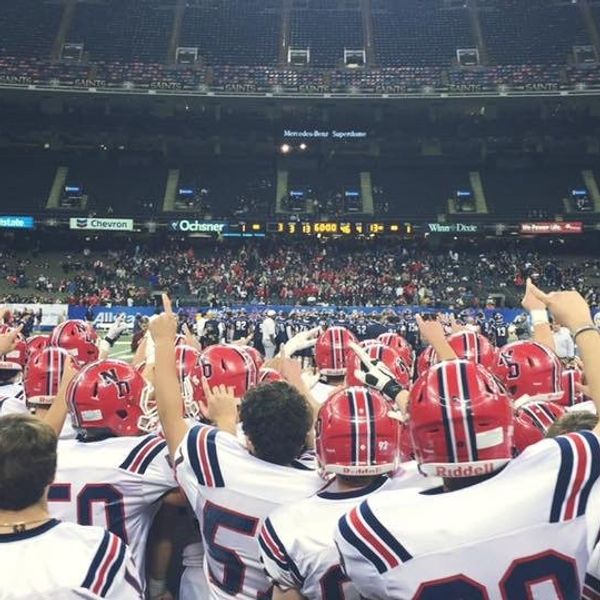For the past few months, I’ve been listening to a podcast detailing the history of the Roman Republic and Empire. As a History major, my predilection towards learning about this ancient and remarkable civilization isn’t hard to understand. What surprises people, however, is when I let on that I am also a huge fan of football. Seemingly, people can’t reconcile the notion that a history buff who is enraptured with the culture of the Romans can also spend the weekend cheering for players to make catches and pound the hell out of the other team. But are Roman history and football really all that different? By exploring this question, I also want to bring up a larger point about the importance of having a diverse set of interests. We humans are not singular or specialized in our pursuits. In fact, I contend that it is better to devote one’s interests to a broad swath of activities rather than isolate one’s passion to just a single area.
The attack of a Roman legion is not too different from the drive of a football team down the field as they aim to add points to the scoreboard. In both actions, there is a methodology which would go nearly unnoticed by those not aware of the behind the scenes planning. The Roman formations which created an Empire did not happen overnight, but came on the heels of centuries of development and betterment. Similarly, there is a precise evolution to football plays. Over the years, games have acted as labs where different strategies have been tested. Successful operations are passed down, while those which fail to produce are forgotten. Both the football fan and student of Roman history understand the importance of patience and tweaking a system until it cannot be perfected anymore.
Perhaps the biggest commonality between these two separate interests is the dynastic elements at play. The Roman Empire was filled with dynasties built from successful reigns. Powerful characters rise and fall and only fleetingly does a truly great emperor--an Augustus or Trajan--emerge from the chaos. Successful dynasties are a hallmark of gridiron football. Every generation, there is but one truly great team which stands above the rest. Many teams have great quarterbacks to lead their team. Still, many more teams have capable coaches. But then there are defenses. Special teams. In order for a dynasty to emerge, all of these things must come together in a flurry of athletic triumph. There are teams which lack but a single component of this potent mix and are unable to achieve greatness. Both Roman history and football fanatics realize that greatness is a rare quality. Dynasties come and go, but the eternal march of time moves forward.
Though I am an academic, I also cherish watching feats of amazing athleticism. People look down on football as something enjoyed only by those of lesser intelligence. That, simply put, is grossly false and a damaging position to have. People should be encouraged to have diverse interests. This allows them to connect with more people and create a greater number of fulfilling relationships with people who also enjoy that activity. I am proud of the fact that I can name Roman emperors and NFL coaches alike.




















